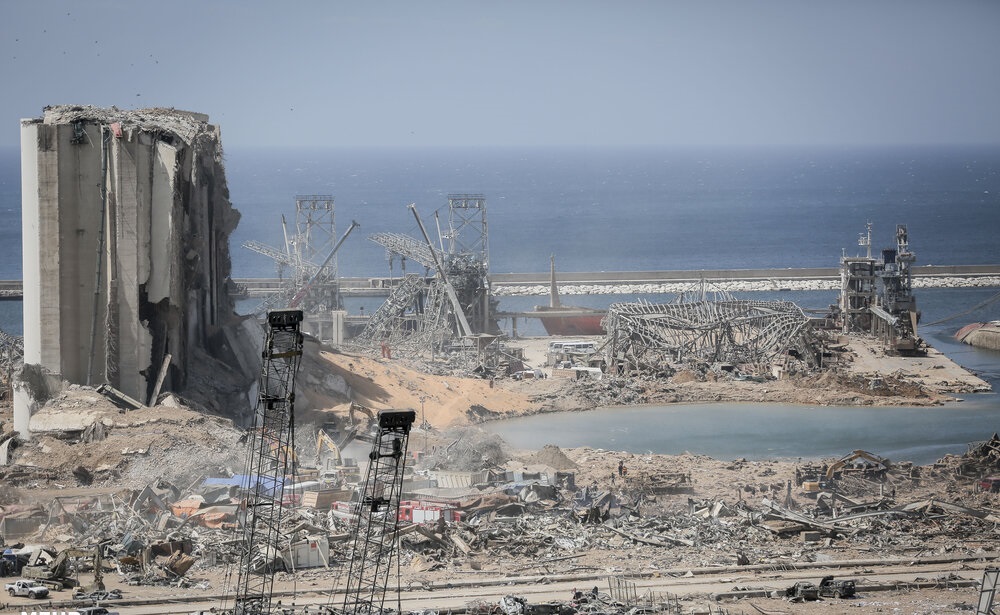The Deadly Consequences of Corruption in Lebanon

On the evening of August 4, 2020, a column of smoke loomed menacingly over Beirut’s vast horizon, foreshadowing tragedy in shades of gray and black. Flashes of white and glimpses of smoldering orange interrupted the inky cloud as it climbed to ever-greater heights. With a deafening blast, a massive shock wave consumed the city in the smoke and terror of 3,000 metric tonnes of ammonium nitrate. In a matter of seconds, the detonation inflicted an estimated $15 billion in property damage. Far more priceless, the human toll of the explosion stands at least 200, with thousands more wounded. In the tearful wake of the blast, the Lebanese people are hemorrhaging hope. Yet the horrific explosion is not merely a chance disaster: it is a symptom of the corruption in Lebanon that is eating the country from the inside out.
History of Corruption in Lebanon
Lebanon has long endured institutionalized corruption. Its current government system formed after the previous regime’s ineptitude eroded national security to the point of civil war. The war lasted from 1975-1990. The conflict occurred between the Palestine Liberation Organization (PLO) and Christian groups backed by Israel and Syria, with both seeking political control over Lebanon. After 25 years of fighting, over 100,000 killed and thousands more uprooted, the conflict finally ended with the signing of the Taif Accord. This accord shaped the constitution into a document conducive to graft.
A government system that allotted public offices to major religious groups supplanted years of instability. This new framework nurtured the sectarianism that still dominates Lebanon’s politics today. Additionally, the presence of extreme polarization favors patronage over democracy. The champions of the civil war quickly grabbed power of the nascent government, bringing with them their blatant, unchecked corruption.
How Corruption in Lebanon Exacerbates Poverty
For years, Lebanon’s political leaders have enjoyed glittering affluence despite the country’s abysmal underdevelopment. Widespread embezzlement and underfunding of vital public services have gravely fractured Lebanon’s rickety foundation. In particular, a series of recent catastrophes have drawn international attention to the injustices long borne by the Lebanese people:
- Economic Crisis: A dire economic crisis has been ravaging the country for months. With a debt-to-GDP ratio of 170%, Lebanon is the world’s third most indebted nation. Even prior to COVID-19, one-quarter of the population was unemployed, and hyperinflation was driving prices to astronomic levels, dragging more and more citizens into poverty.
- Lack of Basic Services: Lebanon’s politicians have chosen personal enrichment over public welfare, leading to dismal internet connectivity, insufficient health care, contaminated water and unreliable power sources. Moreover, in the absence of infrastructure, sanitation deficiencies recently culminated in a massive accumulation of waste that attracted global coverage.
- Natural Disaster: A series of fierce wildfires in October 2019 sparked public outrage when fire departments proved ineffective in extinguishing the blaze. The destructive calamity called attention to the severe underfunding of Lebanon’s crisis response teams.
- COVID-19: The onset of the coronavirus pandemic has heightened unemployment, inflation and poverty. Consequently, the country experienced increased food insecurity and risk of famine, with the three-quarters of the population on track to require food handouts by the end of 2020. The pandemic has strained limited health care institutions, depriving thousands of vital treatment and underscoring the government’s neglect of public services. Overall, COVID-19 has delivered incredible hardship to a country already saturated with adversity. The blame for Lebanon’s innumerable development problems falls upon its leaders’ ineffectual leadership. Their failure or refusal to address long-standing infrastructural shortcomings in favor of self-indulgence has put the country on the brink of collapse.
Forces for Change
Despite the widespread corruption in Lebanon, downtrodden citizens and empathetic foreigners are striving to implement much-needed reforms.
Public outcry has led to numerous recent power shifts. In October 2019, massive demonstrations, set off by a proposed tax increase, united Lebanon’s diverse political sects against government abuses. This monumental display of solidarity ultimately ousted then-Prime Minister Saad Hariri and his administration and led to the induction of Hassan Diab.
The international community has joined this fight against corruption in Lebanon. On August 9, 2020, a global summit of donors authorized $298 million to directly help the Lebanese population. This relief package suggests a departure from previous payments of aid to the government. This practice fostered embezzlement by leaders and eroded the regime’s accountability to the public. Fortifying their stance against corruption, the forum also announced that Lebanon must enact long-overdue reforms to qualify for further funding.
Demanding Change
As the world demands change for Lebanon, recent headlines have chronicled the country’s myriad crises. The blast in Beirut is no different than these struggles: it is a product of the political abuse that has crippled Lebanon for years. The port authority seized the ammonium nitrate that exploded in 2013 and left it “awaiting auction” or a spark to ignite it, whichever came first. Early investigations have revealed the government’s full awareness of the compound’s improper storage: it just did not do anything about it. Instead, the government ignored repeated warnings from experts and postponed handling the issue to a later date. Tragically, chemistry beat them to it.
Once again reminded of the lethal consequences of inaction, protests previously hampered by COVID-19 have revived. These impassioned riots led to the resignation of Diab’s government on August 10, 2020. This event threatens to magnify the country’s instability. Despite widespread anxieties, however, Diab articulated his intention to “stand with the people,” a move that, if adopted the world over, may finally heal Lebanon’s long-borne suffering.
– Rosalind Coats
Photo: Wikimedia
